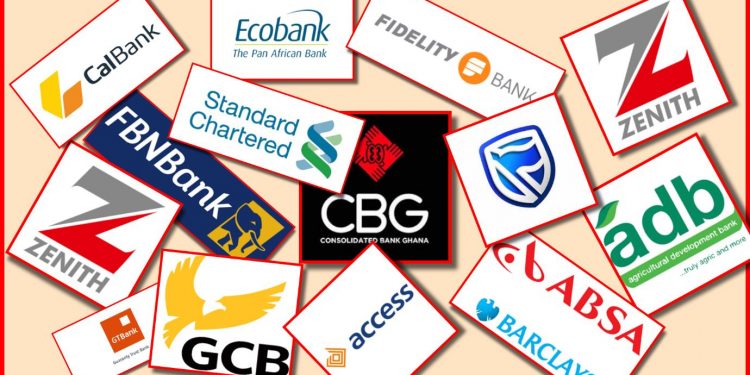Banks operating in the country held the biggest share of the country’s total domestic debt as of the end of June this year.
According to data from the Bank of Ghana, the bank holdings of domestic debt was ¢52.61 billion, about 30.3%.
Comparing it to same period last year, banks holdings in the country’s domestic debt dropped marginally. It was estimated at 31% during the same period in 2020.
“Other holders” made up of Rural Banks, Firms and Institutions and Individuals followed holding ¢51.19 billion of the country’s total domestic debt. This represented 29.5% of the share of the total domestic debt.
The Bank of Ghana held the 3rd largest share of the domestic debt of about ¢34.6 billion, representing 20% of the share of the total domestic debt.
Whilst SSNIT’s share of the country’s domestic debt was estimated at ¢574.1 million (0.3%) that of Insurance companies was ¢949.1 (0.5%).
Meanwhile, Non-Resident Investors held ¢33.8 billion of the total domestic debt, representing 19.5% of the total share. This indicates a decrease in holdings compared to same period last year.
Foreign holdings was however estimated at about 20.3%.
Public debt hits ¢335.9bn as of July 2021
illion ($57.9 billion) at the end of July 2021, the Summary of Economic and Financial Data by the Bank of Ghana has revealed.
This is equivalent to 76.4% of Gross Domestic Product.
However, the rate of increase slowed down, compared to the ¢27.8 billion fresh funds added in April and May 2021.
The government had indicated in the Issuance Calendar in July 2021 that its borrowing will slow down in the third quarter of this year [July 2021 to September 2021] as it’s expected to borrow less than a billion cedi for the entire three months.
According to the data from the Bank of Ghana, the domestic debt went up to ¢173.9 billion in July 2021, from ¢170.8 billion in May 2021. This is equivalent to 39.5% of GDP.




